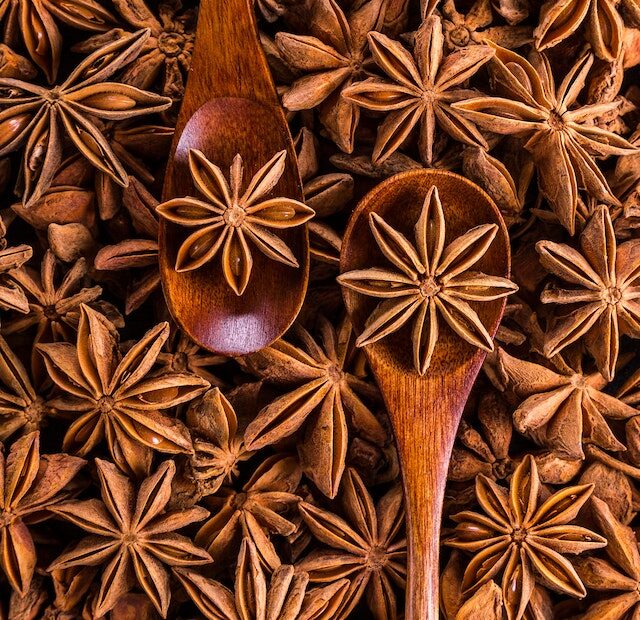Chocolate as a mid-day snack, rasgulla after lunch, and caramel pudding as a post-dinner dessert. Does it sound like a day in your life? A piece of chocolate melting in the mouth is an eternal experience for taste buds. But doesn’t work best for your metabolism. Let’s discuss kitchen spices that can stop you from bingeing on sweets.
Why do you crave sugar?
There are many reasons for your body to seek sugar repeatedly.
- Blood sugar fluctuations
- Low protein intake
- Poor sleep habits
- Stress (high cortisol levels)
- High carbohydrate diet
- Low moods or depression
- Mineral deficiencies (calcium, zinc, chromium, magnesium imbalances)
- Stimulants (caffeine, nicotine)
- Pleasure-seeking dopamine response
- Yeast (Candida) growth
Why do you need to stop sugar cravings?
Does it matter if you have too many sweets? You may argue it makes no difference. Unfortunately, that’s not the case. Keep indulging your sweet tooth and invite in metabolic imbalances. Blood sugar increases, the waistline expands, blood pressure elevates, and good cholesterol decreases. You risk suffering from metabolic syndrome.
- When you eat excessive sweets, insulin eventually becomes inefficient. The role of insulin is to absorb sugar (glucose) from the blood into muscle cells. When this function is interrupted, more glucose is available in the blood than in cells. So, your cells have less energy to work, and muscle mass doesn’t develop. You continue to desire more sugar because of the energy dip. Insulin resistance develops, which is a starting point for diabetes. The excess blood sugar deposits as fat, which causes obesity.
- When you eat more sugars (a high carbohydrate diet), you experience a sudden, steep increase in blood sugar levels followed by an equally steep drop. These peaks and troughs of blood sugar levels damage the body through continuous inflammation. Eventually, you can develop diabetes, heart disease, mood disorders, and cancer.
How do traditional Indian spices stop sugar cravings?
1. Cinnamon (Dalchini):
- The sweet flavour of cinnamon can be your replacement for unhealthy sugary foods.
- Cinnamon helps with sugar addiction by acting as insulin and increasing glucose availability in the cells.
- It also repairs insulin resistance and improves insulin efficiency.
- It calms the sugar rush after meals by lowering the speed of stomach emptying and blocking enzymes that break down sugars.
- Presence of disease-causing fungus like Candida can trigger sugar cravings. Anti-fungal activity of cinnamon oil helps control the urge for sugars.
- Gut bacteria grow and flourish by consuming sugars. It is one of the reasons for a sweet tooth. Cinnamon oil can stop the growth of such bacteria.
- Sugars are a feel-good factor against stress, irritation, and frustration. Cinnamon is effective in reducing stress. Another reason it curbs sugar addiction.
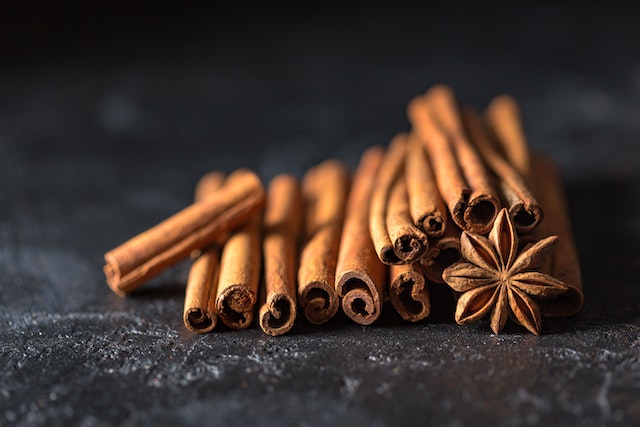
You can eat the cinnamon stick, add cinnamon powder to your food, or prepare cinnamon tea.
2. Fenugreek (Methi seeds):
- Fenugreek is rich in fibre and gives a feeling of fullness. So, your appetite reduces if you consume it.
- Like cinnamon, fenugreek also delays stomach emptying and reduces the absorption of simple sugars (glucose) in the intestine.
- It increases the sensitivity of insulin and lowers blood sugar levels.
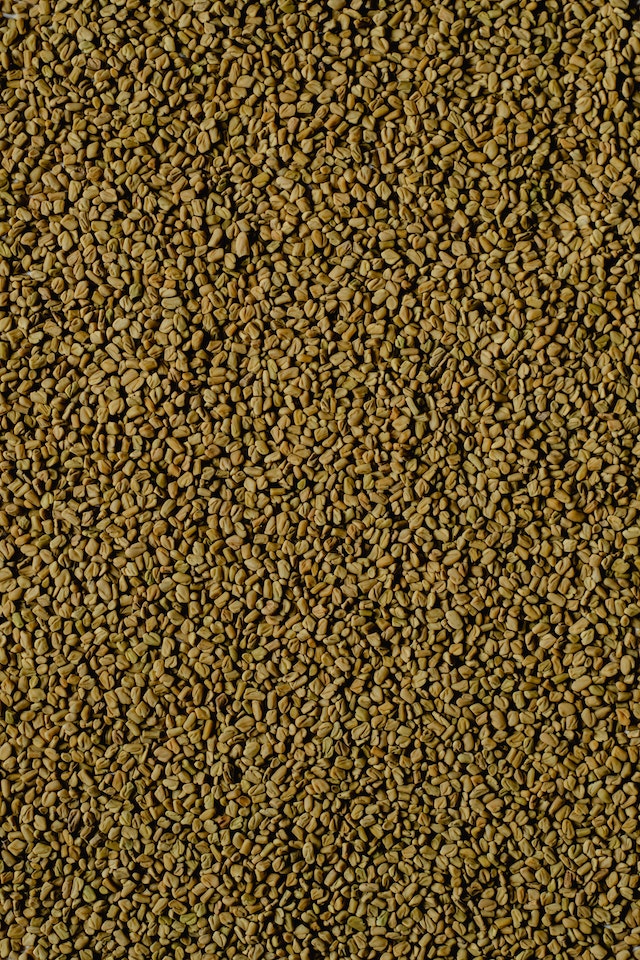
You can soak fenugreek seeds overnight in water and eat them in the morning. Make fenugreek tea by seeping seeds in hot water for some time.
3. Ginger (Adrak):
- Ginger controls blood sugar by restricting the enzymes that digest carbohydrates. The slower availability of glucose in cells prevents sugar cravings.
- Gingerols in the ginger root improve glucose absorption in muscle cells without insulin. So, the concentration of blood sugar reduces.
- They also trigger the beta cells of the pancreas to release more insulin.
- Ginger helps maintain appetite control.
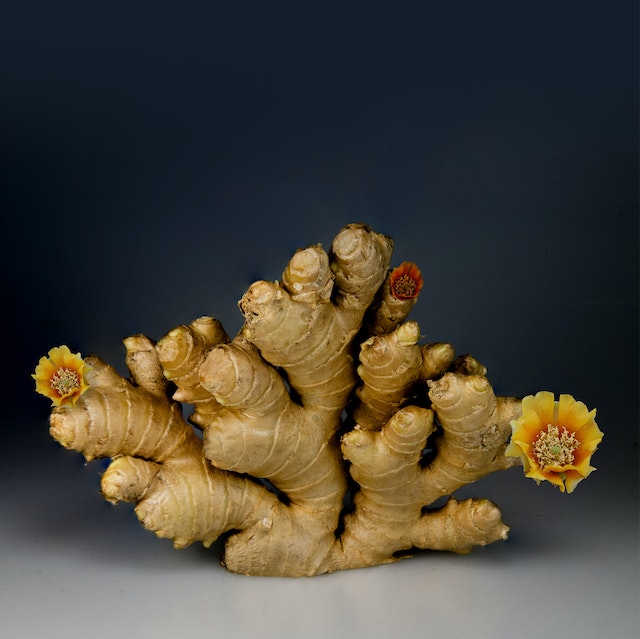
Keep ginger soaked overnight in water. You can consume ginger-infused water throughout the day. Ginger tea is a tasty way to incorporate ginger into your diet.
4. Turmeric (Haldi):
- Substances – curcuminoids – present in turmeric block the absorption of sugars in the small intestine and stabilize blood sugar. They prevent the alpha-glucosidase enzyme synthesis that prepares easily absorbed, simple sugars from complex carbohydrates.
- Cytosine (small proteins) cause long-term inflammation, which destroys the functioning of insulin. Curcumin from turmeric reduces the release of cytosine. With the reduction of inflammation, insulin function improves.
- Curcumin also acts on pancreatic cells and regulates the release of insulin. Additionally, it protects the pancreatic cells from damage by inflammation.
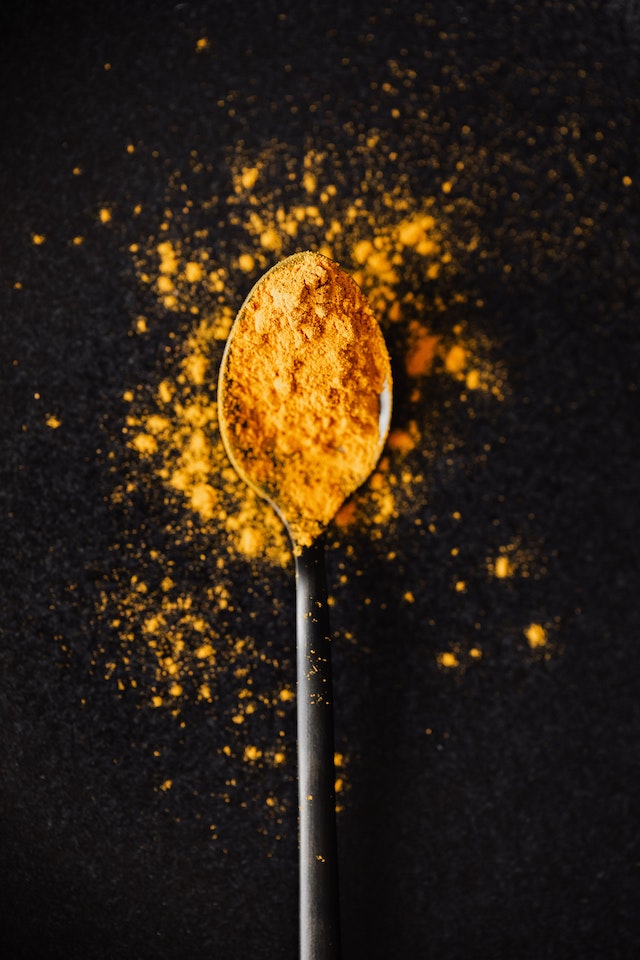
You can consume turmeric as a turmeric smoothie, juice, or tea.
The readily available spices in an Indian kitchen work magic against sugar addiction and blood sugar imbalances. But anything in excess is harmful. Before you add cinnamon, fenugreek, ginger, and turmeric to your diet, consult a nutritionist about their suitable doses.
